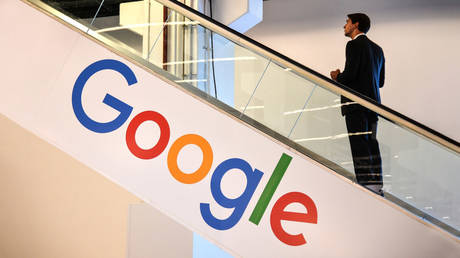Could Google Soon Be Split Up?
It's a wake-up call for Big Tech, yet Alphabet remains the dominant force in the online world.

This decision marks a crucial victory for the Department of Justice (DOJ), which initiated the lawsuit. It may also indicate a shift in the judicial system, potentially favoring regulatory powers over major technology firms like Apple, Amazon, Meta, and Google, all of which have been subjects of antitrust legal actions initiated under the administration of President Donald Trump. This could lead to increased legal challenges for these tech giants.
However, despite the ruling's importance, it might have come too late to significantly weaken Google's entrenched market control. After six years of legal disputes, Google's dominance has only solidified. Even with this judgment, it is unlikely that Google's market share will be substantially reduced. Microsoft's attempt to leverage AI enhancements in Bing did little to challenge Google's dominance, underscoring the possibility that Google might simply be too big to falter.
Google's monopoly power extends beyond technology to strategic business arrangements and its control over ecosystems like the Android operating system and default device settings. The DOJ has criticised these practices for eliminating competitive opportunities for other search engines, allowing Google to sustain its position not merely through innovation but by ensuring potential competitors cannot effectively challenge its lead.
Judge Mehta recognized that Google's competitiveness stems from both its superior product and its strategic default settings. Discussions between Apple and Microsoft to switch Apple's default search engine to Bing fell through because Google's offerings were decidedly superior. Even when Microsoft proposed giving Apple all of Bing's revenue, it still couldn't match the terms that Google could offer with just a 36% revenue share.
The ruling initiates potential shifts in the technological landscape, although it's hard to see a future where Google isn't predominant. One possible direction following the ruling could involve Google being compelled to share its data with competing search engines. However, similar measures in the European Union, such as the implementation of "choice screens," didn't significantly impact Google's market share.
Additionally, the emergence of AI technologies could diminish the relevance of traditional search engines. This legal action might even expedite the migration towards AI alternatives, although Judge Mehta isn't convinced that AI can fully replace traditional search yet.
As the court deliberates on appropriate remedies for Google's actions, suggestions have included implementing choice screens, restricting certain agreements, mandating data sharing, and possibly divesting some of Google's assets like Chrome or Android. However, the effectiveness of these remedies remains uncertain given the vague nature of the court's views on the specific damages caused by Google.
The DOJ's recent triumph also signifies potentially increased risks for other ongoing cases against Big Tech firms, considered legally robust cases. Ultimately, while this ruling might represent a pivotal moment for the technology industry, whether it will enforce meaningful change or simply become a minor detail in Google's continued dominance is yet to be seen. The digital landscape, as it stands, remains firmly under Google's influence.
Aarav Patel for TROIB News












